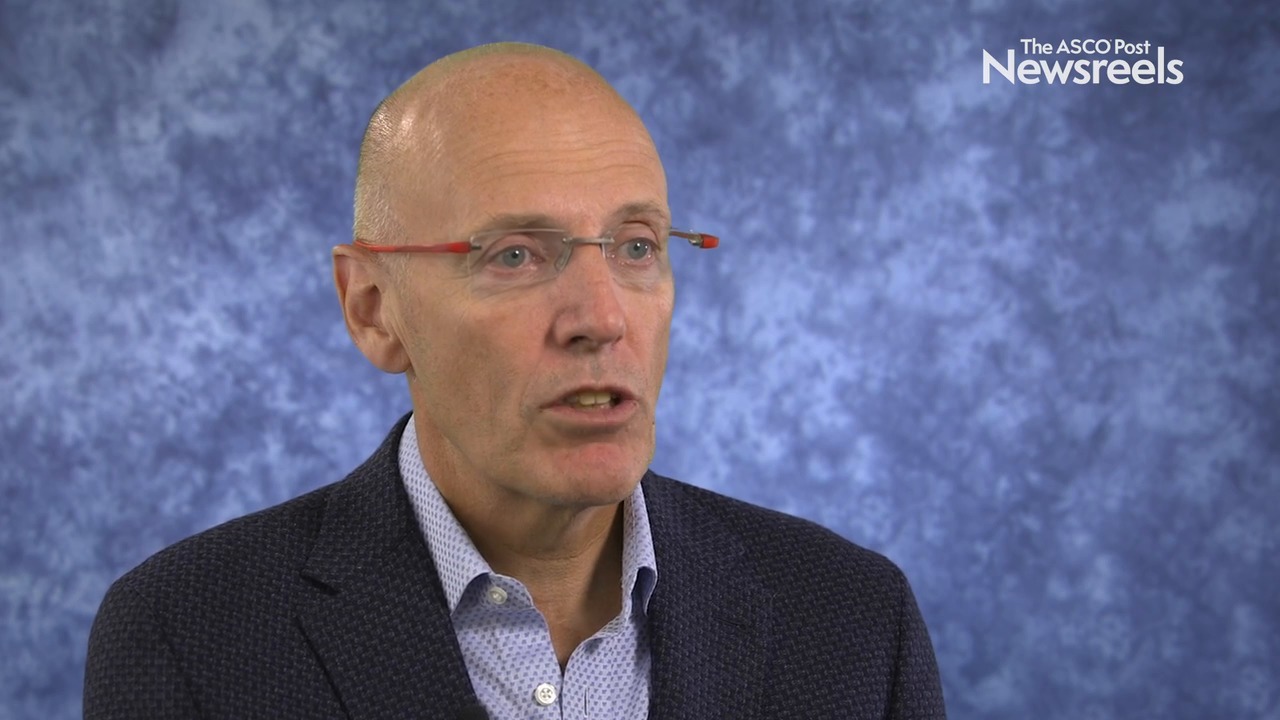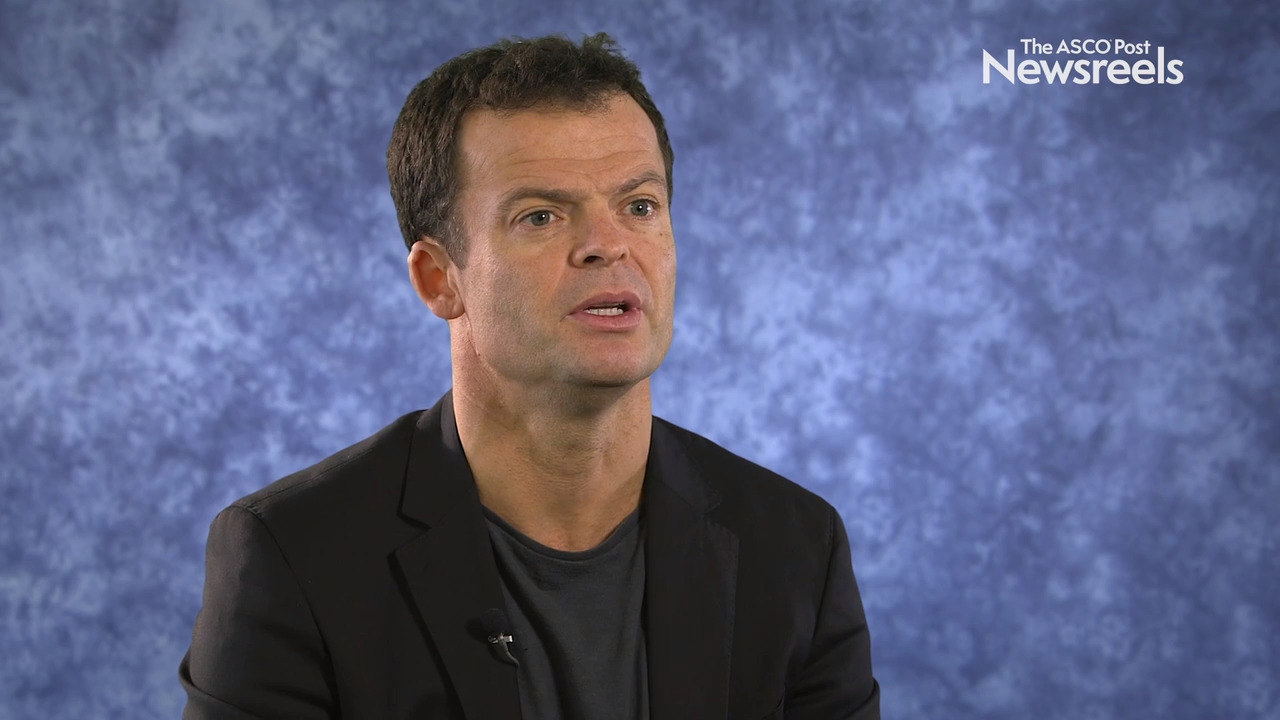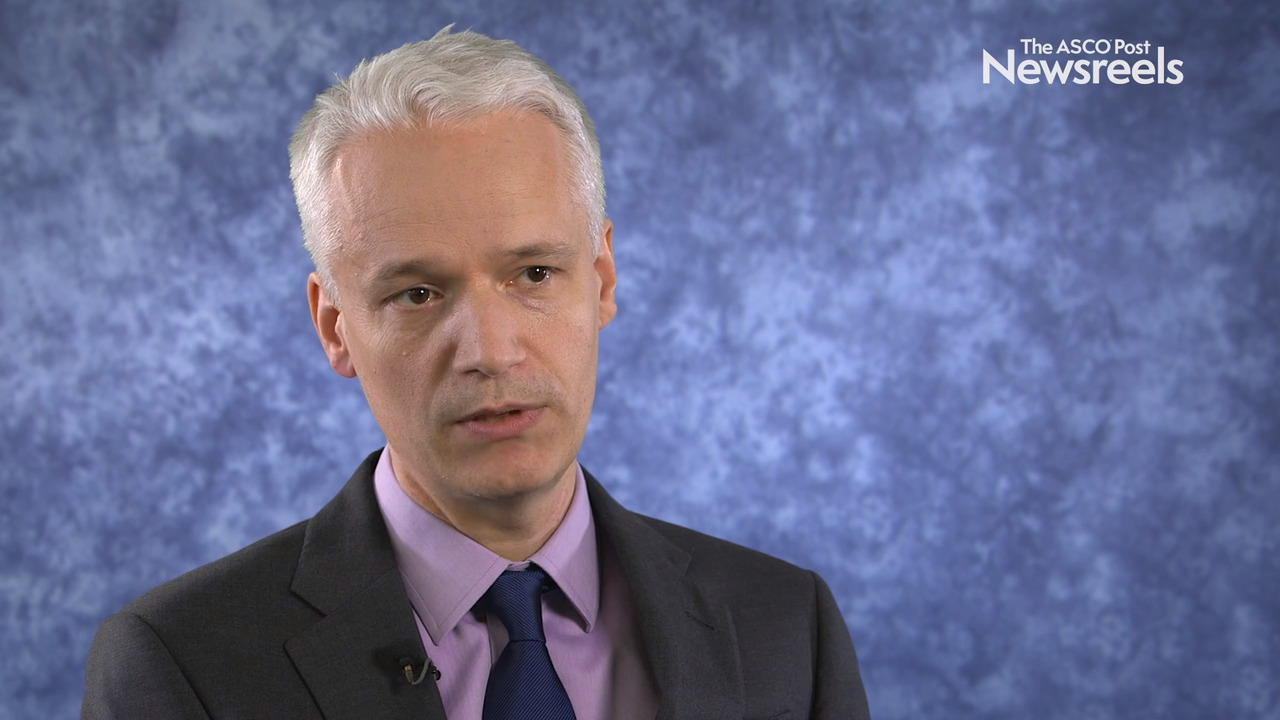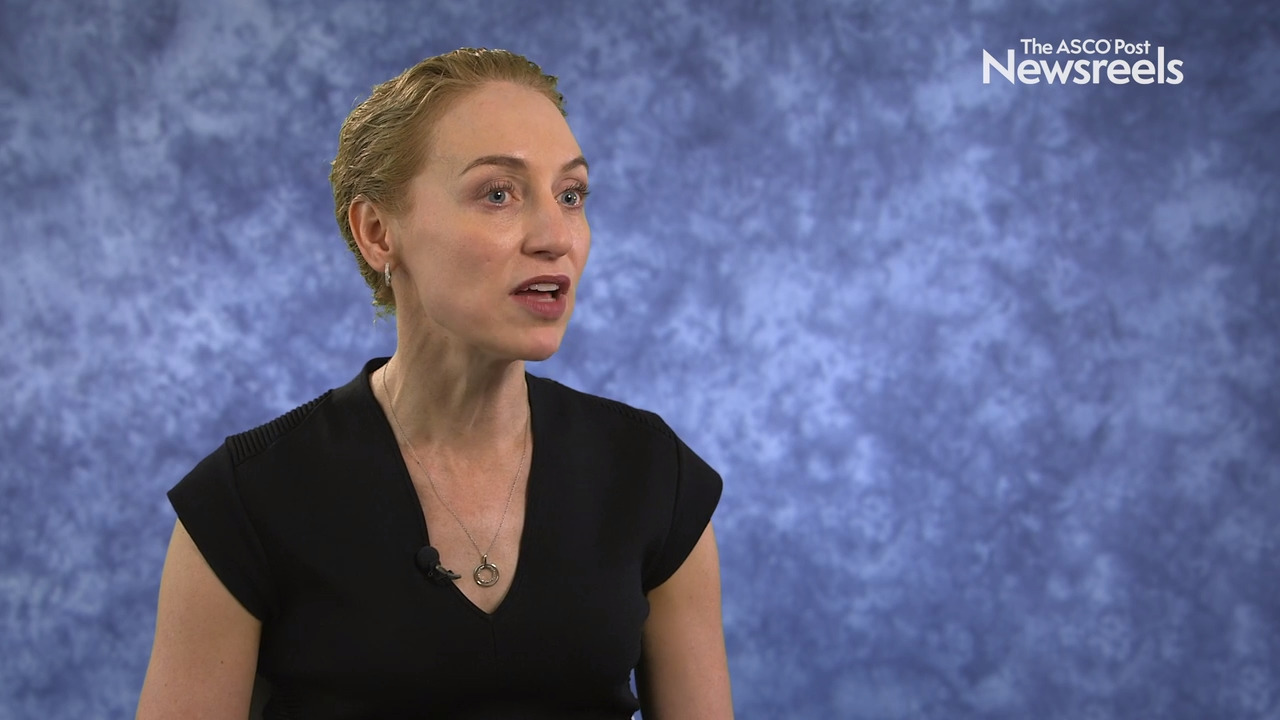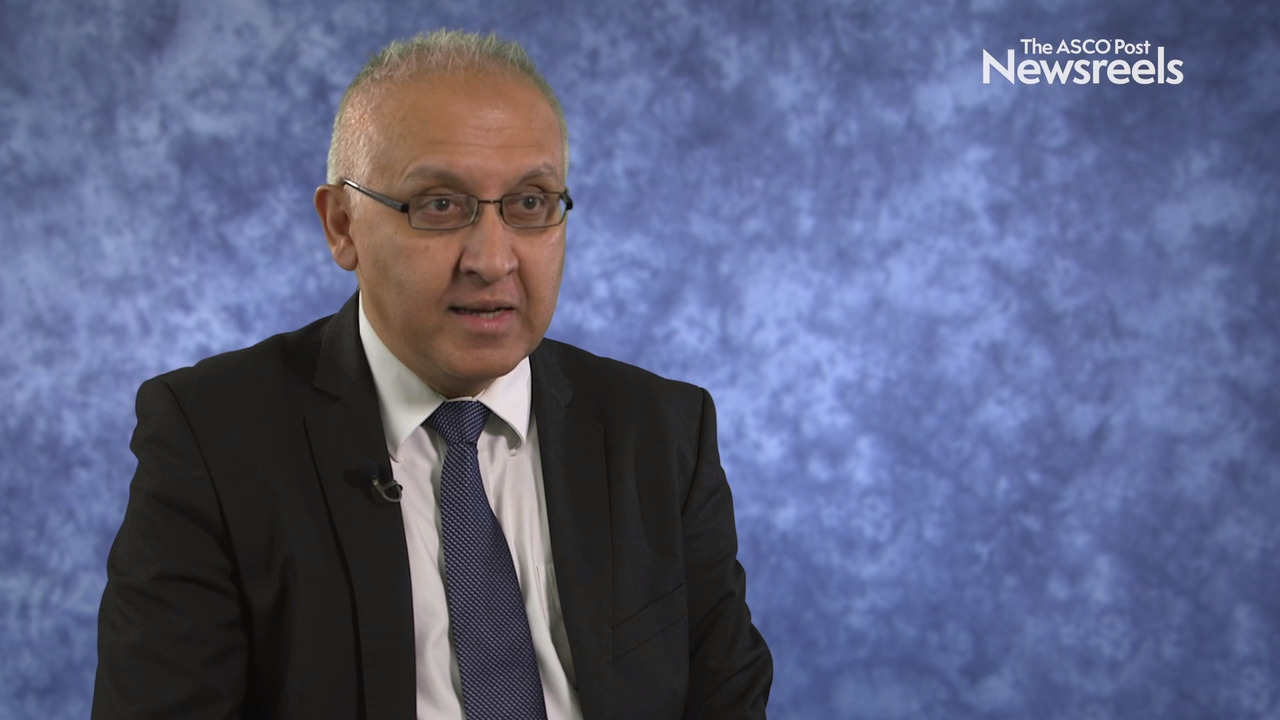Solange Peters, MD, PhD, on NSCLC: CheckMate 227 Trial of Nivolumab/Ipilimumab vs Chemotherapy
ESMO 2019 Congress
Solange Peters, MD, PhD, of the Oncology Department of CHUV, discusses study findings from the first phase III trial to show PD-1 and CTLA-4 inhibition is effective in non–small cell lung cancer, with improved overall survival vs chemotherapy (Abstract LBA4).
The ASCO Post Staff
Nicholas D. James, PhD, MBBS, of University Hospitals Birmingham NHS Trust, discusses the efficacy of prostate radiotherapy plus androgen-deprivation therapy with or without docetaxel in patients with prostate cancer with only lymph node metastases or less than four bone metastases (Abstract 844O).
Thomas Powles, MD, PhD, of Queen Mary University of London, discusses the first study to examine immunotherapy and targeted treatment combinations with a personalized approach in bladder cancer. FGF, TORC1/2, and PARP inhibitors were explored in combination with durvalumab in selected patients (Abstract 902O).
Robin L. Jones, MD, MBBS, of The Royal Marsden/Institute of Cancer Research, discusses the first phase III study in angiosarcoma, which showed no difference in outcome between pazopanib vs pazopanib plus the novel monoclonal antibody TRC105 (Abstract 1667O).
Georgina V. Long, MD, PhD, of the Melanoma Institute Australia, The University of Sydney, discusses long-term outcomes from a phase II trial which showed that nivolumab/ipilimumab therapy demonstrated durable intracranial responses in patients with melanoma brain metastases. No new adverse events were reported (Abstract 1311O).
Mansoor R. Mirza, MD, of Copenhagen University Hospital, offers his perspective on three studies presented in the Presidential Symposium: the PRIMA/ENGOT-OV26/ GOG-3012 trial (niraparib for newly diagnosed advanced disease); the PAOLA-1/ENGOT-ov25 trial (olaparib plus bevacizumab maintenance therapy in newly diagnosed advanced disease); and the VELIA/COG-3005 study (integrating veliparib with front-line chemotherapy and maintenance therapy) (Abstracts LBA 1–4).
